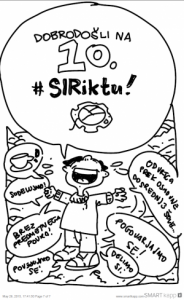Milan Setničar, Elektrotehniško-računalniška strokovna šola in gimnazija Vegova
Teaching of technical subjects is often associated with expensive hardware and many software licenses which are expensive and so students can use them only in school and not also at home for additional training. More bigger problem arises when in the classroom for exercises each student doesn’t have his own equipment f. Of course, part of the learning material is possible treated using simulators, which are usually more affordable, but not entirely. In such conditions a multitude of new information doesnt travel any more to the students through a teacher, but for their selective accepting have to take responsibility students themselves. A teacher become only a coordinator and critical observer on the basis of his knowledge and experiences. My intention is to present a model, that solves described problems, on the SIEMENS and FESTO software and hardware. Taking into account the fact that students in higher education professional schools have very different levels of knowledge in the professional field, mainly because of their own interests in acquiring knowledge and skills, I will show in the teaching model, how to exploit their potential when there are limited material possibilities and in the same moment not limiting their rapid progression in the learning process. Teaching material, provided in the annual work plan is the base for making teaching objectives and an assessment plan . Due to different levels of knowledge, I have already provided, at an early stage of the realization of the curriculum, different speed of achievement the goals. Thus, students with better basic knowledge potential and a faster conquering of the subject material, somewhere in the first quarter of the school year, will come from simulation environments to the real systems. So, both, training and assessment of knowledge are possible completed partially on simulators and partially on equipment in the first quarter of the year. In the next stages, the best students begin with more abstract tasks that require more planning, research, creativity, independence and so they can again work on simulators. The rest of students follow them according to their abilities. In this way, the final score of the subject reflects the actual pupils knowledge without restriction due to available equipment, and on the other hand, the open options give an incentive for research and greater opportunities for cooperation with the economy.
